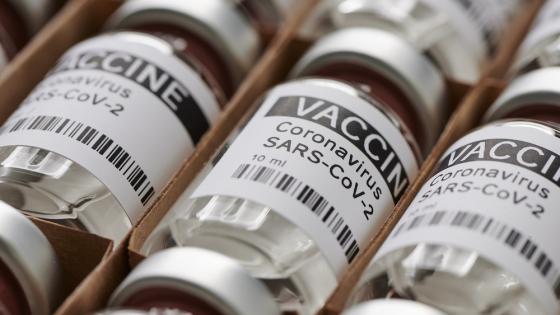History will note that, in response to the COVID-19 pandemic, scientific and human ingenuity developed in record time treatments and vaccines against a virus humanity has never before faced. However, history may also note that the lack of cooperation by the same women and men created situations of extreme international tensions, unnecessarily prolonging the pandemic and leading to the needless death of hundreds of thousands of people and trillions of dollars of losses to the global economy.
The race for vaccines and treatments will dominate the international agenda in the coming months. As vaccine producers will struggle to meet demand to begin with, the limited supply of the first vaccines will cause international tensions as countries struggle to get their hands on them – brace for requisitions as we have seen with masks and medical equipment – and foster contests for influence over countries that will not have secured their own supplies.
There is a substantial risk that half of the world’s population may be deprived of vaccine access within a few months, which would constitute a significant and catastrophic collective failure. Most developed countries have bilateral agreements with pharmaceutical companies that guarantee access to vaccine doses – sometimes more than they will need in the short-term – but most of the Global South countries don’t have these arrangements. There can be no worse prospect than a world in which some – the rich, the white, and some Asians – would have access to vaccines, while another part of humanity is left out. Yet this is the situation the world is likely to find itself in in a few months.
It would be in no one’s interest: a full resumption of international trade and economic activity will not be possible as long as some countries, populations and regions remain affected by the virus. Every additional month of delay in achieving immunisation coverage would translate into $375 billion in losses to the global economy and tens of thousands of lost lives. The payoff of investing to ensure rapid and global vaccine production and delivery is particularly high.
Bottlenecks are identified. They are less at the level of development and intellectual property – especially since clauses facilitating access to treatments in cases of emergency exist in WTO rules – than downstream, at the level of production capacities, procurement, financing, regulatory guidance and in-country delivery. Funding committed for procurement and delivery have been limited, streamlined regulatory and policy pathways guaranteeing a high level of safety have yet to be deployed, and supply chain preparedness still suffers from significant gaps.
No solution to these problems will be found by States alone. These are typically issues that only a robust multi-stakeholder engagement can address. The world has been through this before, in confronting the AIDS epidemic. As today, the actors were lacking coordination. States hesitated between rivalry and cooperation, the connection with scientific research was haphazard, pharmaceutical groups were balancing between racing for public good or for their own profits. The Global Fund was the first formal multi-stakeholder coalition bringing together governments, scientists, NGOs, philanthropy and international organisations. It has proven itself much more effective than traditional international organisations.
The battle to develop, produce and distribute vaccines and treatment against COVID-19 on a global scale will only be won by similar multi-stakeholder initiatives or coalitions. With this in mind, the WHO, President Macron, the European Commission and the Gates Foundation launched the ACT-A initiative earlier this year. Furthermore, the Gates Foundation has negotiated commitments from 16 leading life sciences companies to expand global access for COVID-19 diagnostics, therapeutics and vaccines. Several governments, scientific actors, philanthropists and civil society organisations have expressed their readiness to partake in this initiative. The World Bank has just announced $12 billion in loans to help countries purchase and deliver vaccines. Building on this, it is time to give a new dynamic to ACT-A around a few principles for the future that could be widely endorsed and that would ensure a good multi-stakeholder coordination.
Without the necessary funding, however, this effort will be fruitless. Efforts are currently developed to mobilise public and private grant contributions. While very significant, it is unlikely that they will produce in time an amount of financing commensurate with the most urgent needs. ACT-A has so far raised $3 billion out of its $35 billion target, and $15 billion are needed in the short term to remain relevant. It is improbable that the contributions of the major developed countries, most of which have already been pledged, will increase significantly to reach this bar.
This is a case where ‘innovative’ ways of financing, already available for other aid programmes, would be appropriate. Borrowing on capital markets the amounts needed to finance a programme of vaccine production and distribution is one way to make it work, with reimbursements over time based on binding commitments by governments and other contributors. Debt financing is justified in this case both by the urgency, by the social return on investment – including for countries that would not directly benefit for the programme – and by the low level of interest rates that create an opportunity. The issuance of bonds backed by future contributions would reconcile the gradual increase in resources with the urgency of financing vaccine production and access now.
Such a programme could rely on the International Finance Facility for Immunisation (IFFIm) existing infrastructure that supports the COVAX initiative, allowing to benefit from financial expertise and technical know-how that already exist; or it could go through a new facility lodged in an existing international institution. The commitments, which would be a very small fraction of the $12 trillion stimulus packages planned by major economies, should be discussed within the coordination of recovery plans under the G7 British presidency and the G20 Italian presidency.
There is no greater challenge today than rebalancing cooperation and competition to ensure a rapid immunisation coverage of populations and securing the necessaries funding. A polylateral approach would be required to successfully achieve this objective, and it is within reach.



